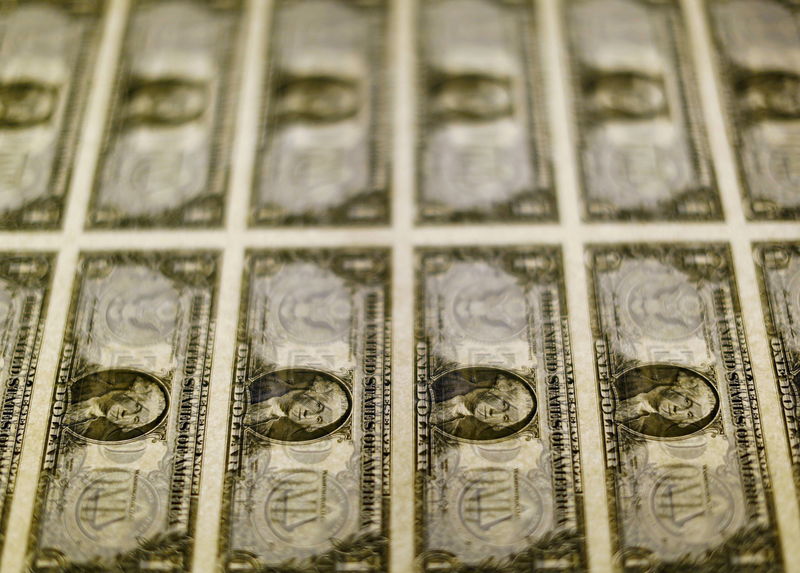By Richard Leong and Anirban Nag
NEW YORK/LONDON (Reuters) - The U.S. dollar's share of allocated global currency reserves grew for a second straight quarter, while euro's share declined further to its smallest in nearly 14 years, according to data from the International Monetary Fund released on Thursday.
The greenback's share of allocated currency reserves rose to 64.06 percent of the total allocated reserves in the fourth quarter of 2015, equivalent to $4.36 trillion, from 63.98 percent in the third quarter of last year.
The rebound in the dollar's share coincided with signs of global market stability in the latter part of 2015. In the first half of last year, there was evidence central banks, especially those in emerging markets, sold their holdings of greenbacks in a bid to shore up their weakening currencies.
The euro's share, meanwhile, shrank for an eighth consecutive quarter to 19.91 percent from 20.34 percent in the prior quarter, the latest IMF data showed. At its peak in 2009, the euro's share of global reserves was 28 percent.
"With China's share coming as part of the allocated reserves, it becomes tricky to analyze this data. But it is not a surprise that euro's share has dipped in the fourth-quarter," said Yujiro Goto, currency strategist at Nomura.
Global foreign exchange reserves fell for a second quarter to $10.92 trillion from $11.19 trillion in the prior quarter. The total amount of allocated currency holdings, however, grew to $6.8 trillion from $6.6 trillion in the third quarter.
It had long been speculated that China did not report its reserves to the IMF and the country's asset holdings were part of the unallocated reserves component totaling $4.118 trillion in the fourth quarter of 2015.
China began reporting in the second quarter of 2015 a representative portfolio on a partial basis and will gradually increase to full coverage of foreign exchange reserve assets within two to three years, according to the IMF.
China's foreign exchange reserves, the world's largest, fell $107.9 billion in December to $3.33 trillion, the biggest monthly drop on record.
Its reserves have shrunk more in early 2016, albeit at a slower pace. In February, they fell to $3.20 trillion, the lowest level since December 2011, central bank data showed.

On Thursday, the People's Bank of China released data on its derivatives positions on foreign currencies against the yuan for the first time. They showed that the PBOC held a nominal short position of $28.9 billion and $2.438 billion of total long positions at the end of February.